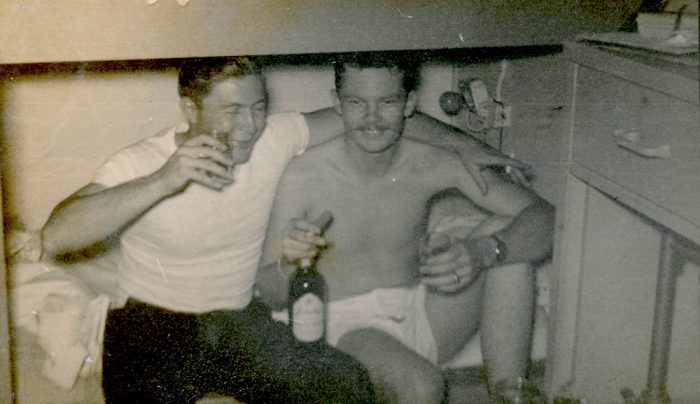“If we are not regularly embarrassed about who we are, the journey to self-knowledge hasn’t begun.” ~ Alain de Botton
~
The romantic notion of creativity is that it occurs in these flashes of inspiration that hit us like thunderbolts—but serious artists know in their hearts that this is patently false.
The greatest work is usually the result of long hours of silence and solitude—and as much as I have been known to kick and scream about it from week to week, there is no way I would’ve written my first book in two months or have anything close to the creative output that I do if I was shacked up with someone else.
Those quiet mornings when I can sit in silence are priceless. Most of the time.
There are times, however, when I float off into memories of some of the most cringeworthy moments of my life. I will relive the scene, and I will imagine all of the terrible things that others were thinking and saying about me. I was an active substance user for 20 years, so there is no shortage of this material. There are times I go so deep into these meditative tangents that I shudder—physically shudder—when I remember some of the stuff I did and how clueless I was about how my friends were perceiving me.
Usually this sort of thing can be sparked off by the smallest of slights committed by old friends. When they throw big parties and I only learn about them on social media, after the fact. When I comment on one of their posts and it goes completely ignored. When I run into them and I am greeted with cold and cordial banter.
To me, these are all signs that I am always going to remain persona non grata. There are situations that even 10 years of sobriety can’t erase.
This is where I go in my darker times. Of course, when I feel good about myself, I chalk up a lot of this estrangement to the fact that I no longer drink or use substances and they still do. The one thing that life will give you in exchange for your youthful appearance is wisdom, and my hard-earned wisdom tells me that it is a little of the former and a little of the latter. Depending on whom you were to ask.
The question remains, though, is there anything to be gained by ruminating on our bad experiences? Can we learn something from that drunken scene with our ex-girlfriend? The one that took place in front of everyone in town? The one that started in the bar and wound up right in the middle of Main Street? The short answer is yes.
When we remember our social transgressions from our earlier days and we cringe, it reinforces our moral compass. Not only do we not want to be perceived in such a way, we don’t want to be that person even when no one is looking. This is also known as character. As our character shifts into the shape we are most comfortable with, we evolve into better people.
It also tends to strengthen our humility—which can only be a good thing. In author Melissa Dahl’s TED talk, “You Should Be Embarrassed,” she tells a story of a psychologist treating people with social anxiety disorder by having his patients walk into public places and ask the shopkeepers the most embarrassing and cringeworthy questions: “Hey, do you have these condoms in smaller sizes?” Why? Well, what better way for a person to get over themselves or to learn how to laugh at themselves than with this kind of social shock therapy?
I get that it may seem a little harsh—and I don’t know if I’d be down with engaging in this sort of behavior—but I see where the advantage to it is.
I think a lot of the pain I have suffered through life has been the result of taking myself too seriously. I always have. So, yes, a large dose of humility may have served me well.
And if you think about it, cringing at the dumb stuff we’ve done just softens our humanity. We, as human beings, will keep doing cringeworthy stuff every so often. We’ll like someone’s Instagram photo from November 2016, we’ll read someone’s intentions the wrong way, and we’ll trip over our own feet when we are trying to impress the object of our affection.
But when we remember that everyone is fallible, it helps us to not turn it into more than it is. It helps us to get over ourselves.
And let’s face it: we can all profit from that. Because when we are able to truly laugh at ourselves, we can find the joy in life that has eluded so many of us for far too long. I’d venture to say that this is where joy lives—and right now, more than any other time in our lives, we could really use a little joy around here.
AUTHOR: BILLY MANAS
IMAGE: SIMPLEINSOMNIA / FLICKR


No comments:
Post a Comment